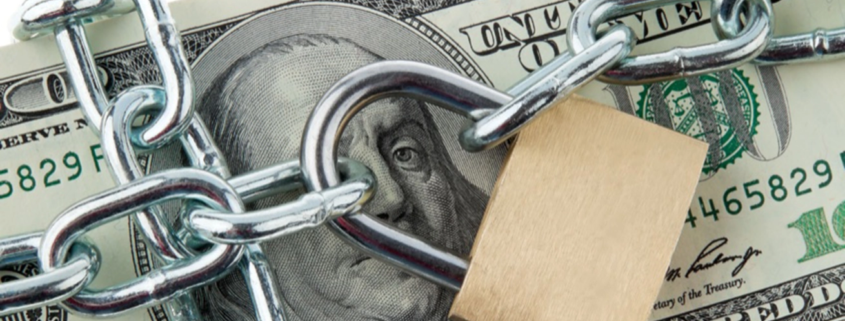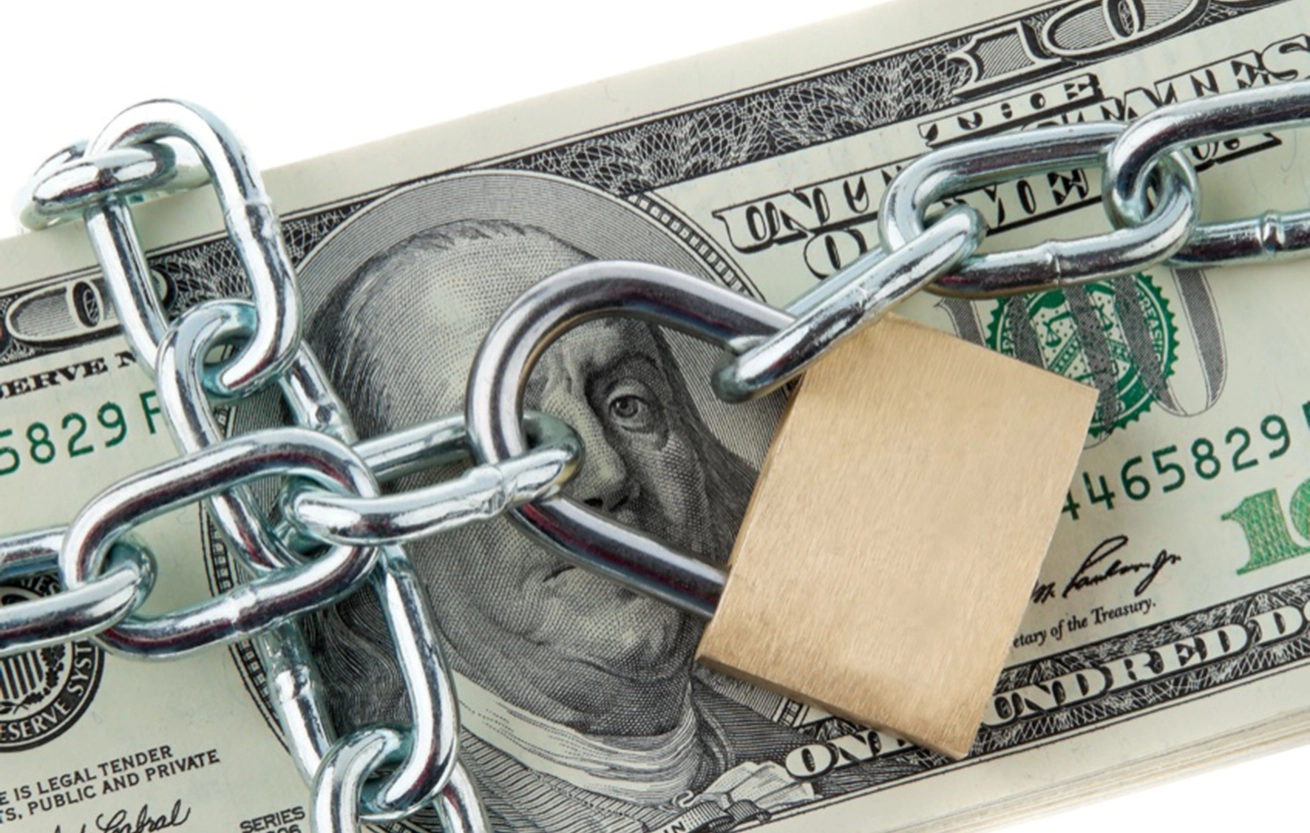Thinking About Breaking Into Your Retirement Account? That’s a Problem
Millions of workers are now dipping into retirement accounts to cover everything from weddings and vacations to ordinary living expenses. Perhaps you’ve considered it yourself. Seeing a retirement account as a savings account—or worse, a personal ATM—is super risky. Sure, it’s your money, but it’s not your money now. It’s for later.
The beauty of an IRS-sanctioned employer-sponsored retirement account (401k, 403b etc.) is that you are saving pre-tax dollars—the amount of your paycheck that you get to keep, plus the dollars you would normally have to pay to governments, also known as withholding. You get to invest the entire amount, even the part that is not yours. However, never forget that one day, you will be required to return the original amount that you were allowed to invest, the amount hat will never be yours to keep.
It’s no secret that what you see in your paycheck is not the full amount you earned. In fact, the amount in your paycheck is shrinking, and many of our elected officials are trying to shrink that even further by increasing taxes. You know what I mean if you live in California—one of the most heavily taxed states where I lived for decades. But I digress.
Quick Review
A retirement account allows you to save your money before it gets taxed. If you take your money home, you must earn at least $1.00 to see $.65 in your paycheck. But if you put that dollar into a retirement account instead, you get to deposit the entire $1.00—your $.65 plus $.35 that belongs to the government. It’s not a gift; you will eventually have to pay that $.35 to the government. But for now, you get to keep all the growth you will achieve by investing the government’s money! Get it? And it’s all locked up, so it is safe from YOU. That’s the beauty of a retirement account.
Sure, there are ways to get to those funds prematurely, but more compelling reasons you should not even think about it:
Borrowing Kills Growth
If you go and stick your hands in there and borrow some of that money, you mess things up. There are rules, conditions, and penalties for doing that. But the biggest penalty of all is that you stop the machine that makes those dollars grow. Sure, it can be slow growth, but it’s growth nonetheless.
All Due and Payable—NOW!
There are many reasons not to borrow from an employer-sponsored retirement account, but for me, the biggest reason is that should you leave your job for ANY reason, that loan becomes all due and payable. You’ll have a couple of weeks to come up with the money. And if you can’t? The outstanding amount of that loan will be automatically converted from a loan to a “cash withdrawal.”
Penalties and taxes
Between the penalties and taxes you will immediately owe on that cash withdrawal, it could cost you up to 50% of the amount you borrowed. Gone. Vanished into thin air.
Here’s an example
You borrow $15,000 from your 401(k) for your daughter’s wedding [or whatever, fill in the blank]. You feel OK about that because you immediately start a repayment plan that includes interest you’re actually paying to yourself.
A couple of months later, you get a pink slip—a shocking, unexpected layoff. You get a second notice that you have 14 days to come up with the entire loan amount, which is $14,650. How are you supposed to do that?! You simply cannot.
Your retirement account plan’s administrator immediately converts the $14,650 balance borrowed from your retirement account into a “cash withdrawal.” BAM! Just like that, you owe a 10% penalty on the entire $15,000. Then, the entire $15,000 is immediately reported to the IRS as ordinary income upon which you owe federal and state (if any) income tax*.
Your federal tax rate is 28%, and since you live in California, you must also pay around 10% to the state. Do the math: 15,000 x (10% + 28% + 10% = 48%) = $7,200. That’s what you owe in penalties and taxes. Can’t pay? Then you’ll have to agree to a payment plan with the feds and possibly a state tax board—plus interest, of course. Kaching!
Whatever will you do? You don’t have a job; you can’t afford the bills you have already. How will you take on two more monthly payments to creditors (feds and state) who are anything but understanding, kind, or forgiving should you fall behind?
Back to reality
That was only an example. You still have time to reconsider taking a loan from your retirement account. Here’s my suggestion: Don’t! Do not even think about it. The money in your retirement account will become your safety net in the future. Live as if the money is not even there. Save it, then forget it.
But I can’t pay my bills
In light of inflation bringing on intolerable costs for life essentials, your net income is possibly unable to stretch as far as it could a year ago. In that case, continuing contributions to your 401k (or other) retirement plan may not make sense. You may be better off reducing or eliminating contributions for now. That will increase your net take-home pay to get you through.
If you find yourself in this situation, make an appointment to speak with your plan’s administrator. By discontinuing future contributions (you can always start up again later), the increased amount in your paycheck may be sufficient to get you back on track with on-time payments.
*Currently, only seven states—Alaska, Florida, Nevada, South Dakota, Tennessee, Texas, and Wyoming—levy no state income tax.















We withdrew from a retirement account and the amount we withdrew was not nearly as much as the amount we had to repay to get back to the point we would have been had we not withdrew. So do not under any circumstances touch anything that says retirement…catastrophe awaits you when you want to retire.